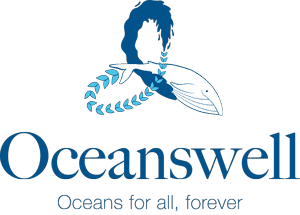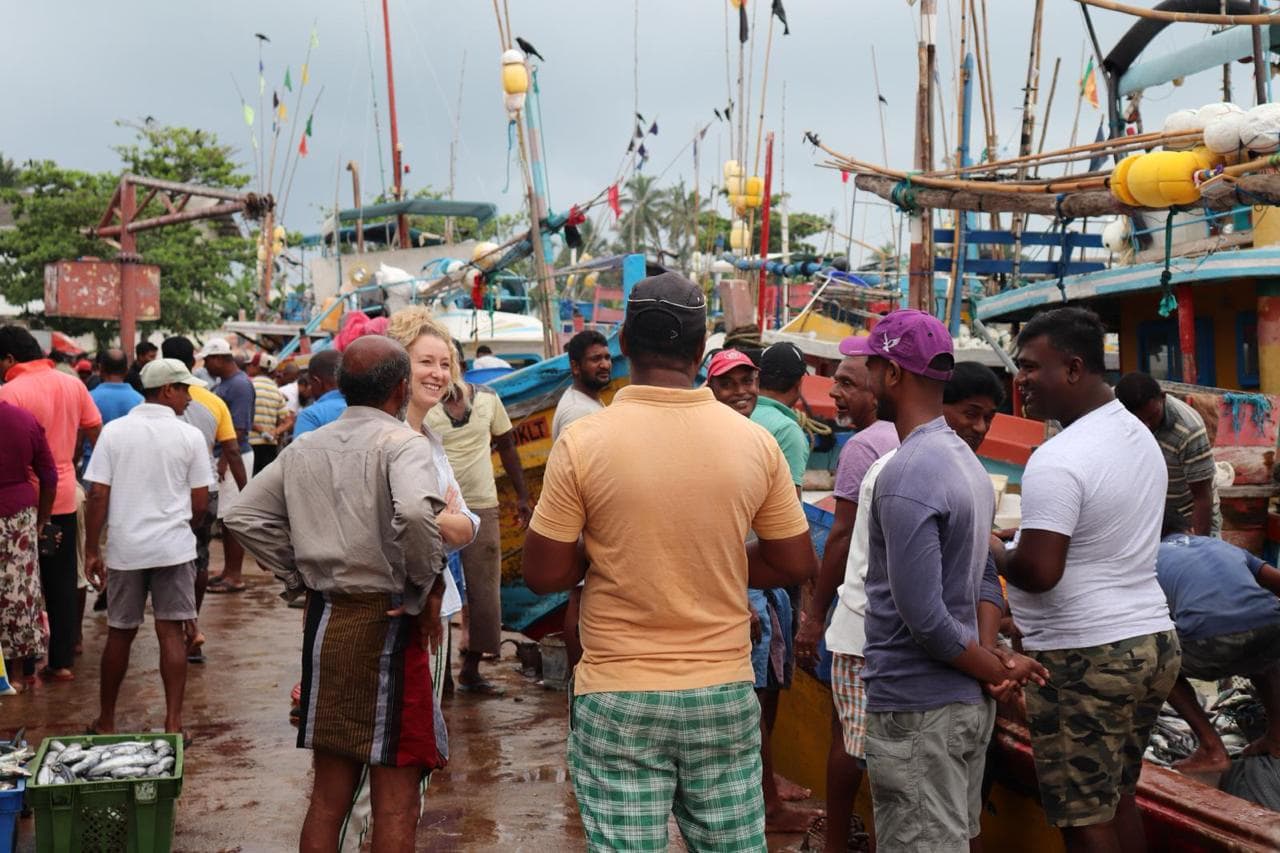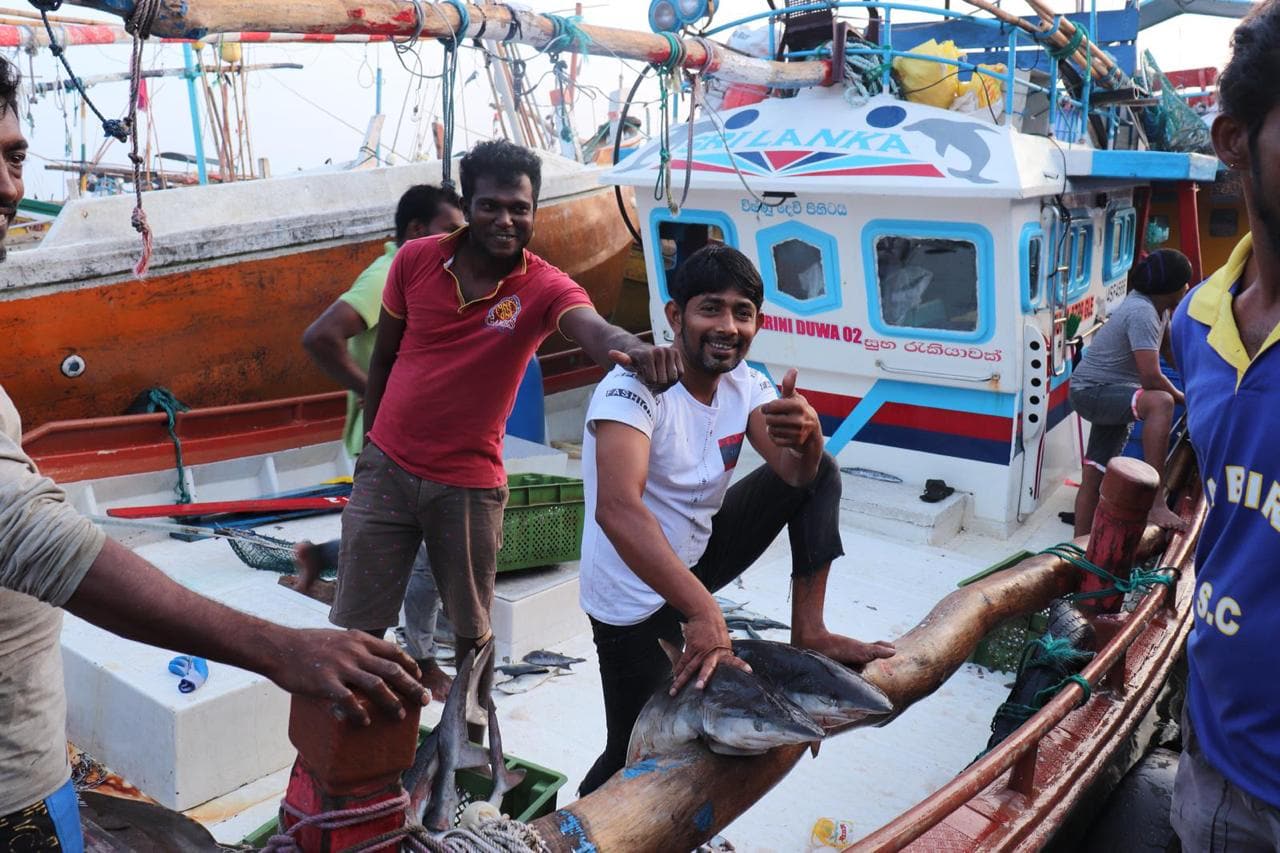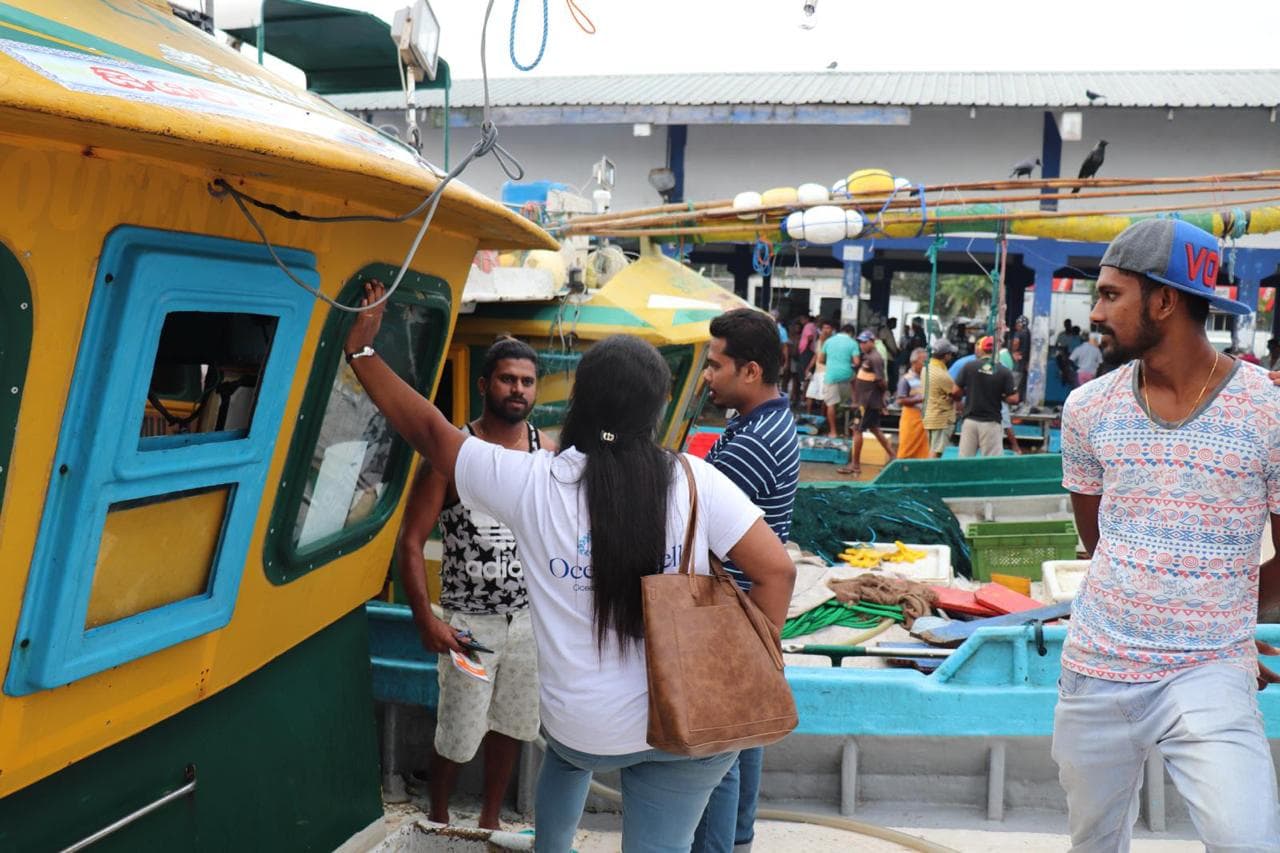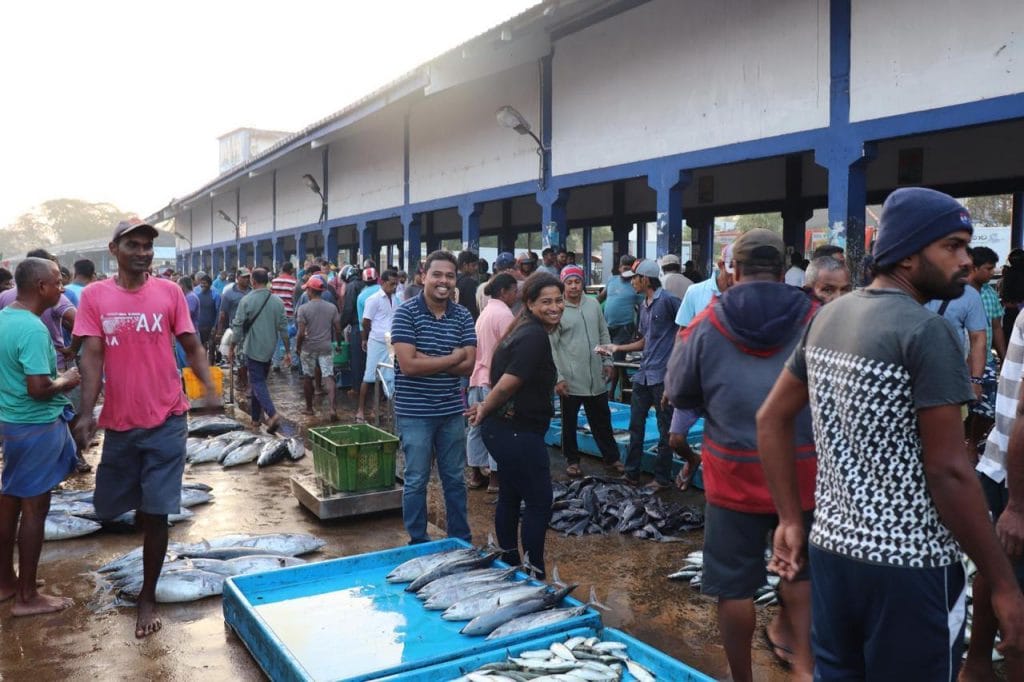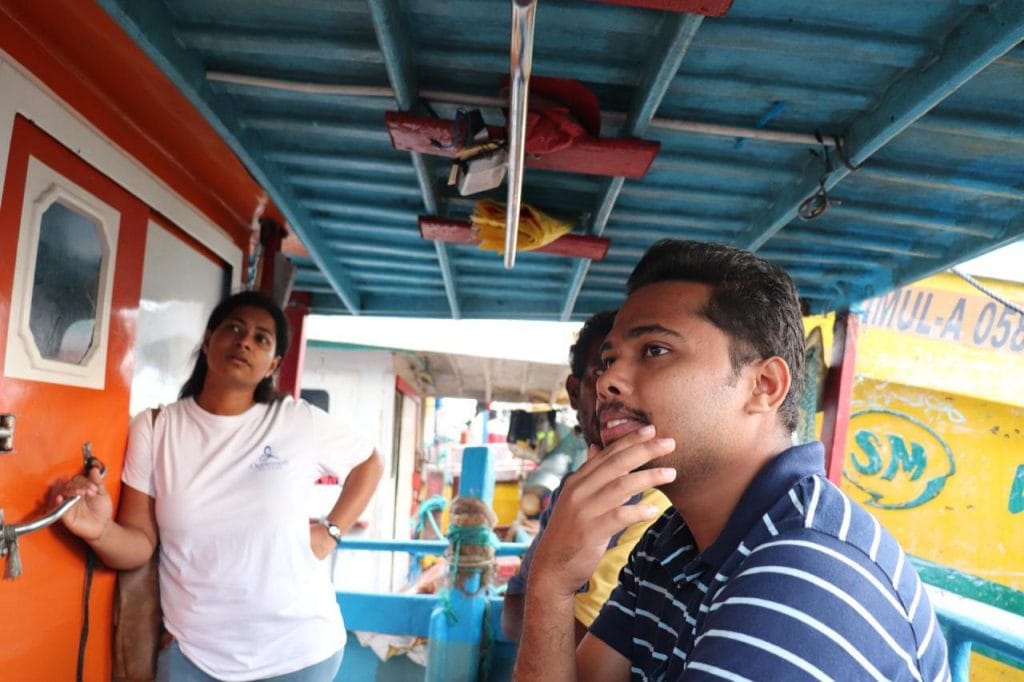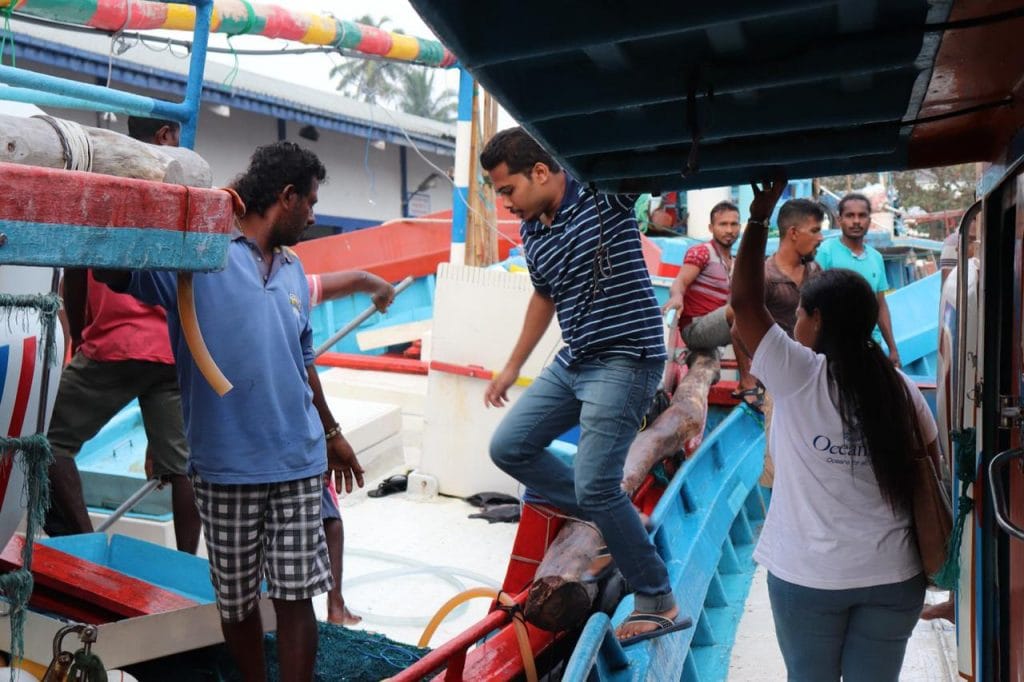By Isuru Wijesundara, Oceanswell
Fisheries is an integral sector in Sri Lanka providing >580,000 livelihood opportunities as well as the majority protein requirement of the people. As such, it is imperative that fisheries are managed using policies that ensure sustainable long-term utilization. Policies that are implemented based on limited and inadequate data may fail to predict and adapt to human responses ultimately rendering them ineffective.
In 2012, Sri Lanka introduced a ban for catching and landing thresher sharks due to growing concerns of accelerated exploitation that put thresher populations in rapid decline. As such, of the three extant species of thresher sharks; Alopias vulpinus (common thresher) and Alopias superciliosus (big eye thresher) are classified as vulnerable, and Alopias pelagicus (pelagic thresher) as endangered by the Redlist of the International Union for the Conservation of Nature (IUCN). Furthermore, all species were listed under Appendix II of the Convention on International Trade of Endangered Species of Wild Flora and Fauna (CITES) in 2018.
As a Research Assistant on a collaborative project between the University of Exeter, Zoological Society of London (ZSL) and Oceanswell, I spent much of 2019 and 2020 in fishing communities that used to land threshers legally prior to the ban. While conducting our work on socio-economic value chains for shark fisheries we noticed that some threshers were being landed despite the existing ban. In addition, while speaking to fishers we noticed that many did not agree with the regulation citing that it had serious negative impacts on their livelihoods. This led us to question whether the ban had been successful in achieving its expected outcomes; a question not previously researched in detail.
This study used focus groups to understand fisher perceptions (i.e. what they think) of the thresher shark ban, to examine what factors may be undermining or motivating overall support and compliance with the ban. Over a ten-month period in 2019, we conducted focus groups with two contrasting fisher groups on the western and southern coasts of Sri Lanka. These groups were characterised by their different vessel types, which were Inboard-Multi Day (IMUL) boats and Out-board Fibre-Reinforced Plastic (OFRP) boats. IMULs are large to medium vessels that typically target large pelagics such as tuna and billfish during long trips (~2 months) in the EEZ or high seas areas. They regularly interacted with threshers, mostly accidentally, and landed them as valuable by-catch. In contrast, OFRP are smaller vessels, that operated targeted seasonal fisheries for threshers off the south coast of Sri Lanka, relying on them for approximately 100% of their income. We chose these two groups due to the differences in their historical reliance on threshers, which we thought would provide us with insight into the wide range of human impacts of the ban. We recruited participants by approaching them at markets and in fishing communities and asked if they would be willing to chat with us about threshers, with consent to be recorded. Conducting focus groups was a challenge for us as we had to face a high degree of rejection particularly from IMUL fishermen. This was due to a misconception that researchers may use the data to negatively impact their livelihoods. Interestingly, OFRP fishermen were highly supportive as they hoped that by speaking with us they would stand to gain a voice for their fishing rights
The study found that the ban on threshers was effective in halting the targeted fishery but resulted in severe socio-economic consequences. This included reduced profits from fisheries, loss of livelihoods, loss of investment in equipment and reduced trust in fisheries management. The impacts were more severe for OFRP fishers who were highly reliant on seasonal thresher shark fisheries than for IMUL fishers, although IMUL fishers also lost a valuable source of income from occasionally targeting (non-compliance) or accidentally catching threshers. We also found reports of occasional non-compliance, as IMUL fishers sometimes land threshers they catch as by-catch. They said it was worth risking arrest because of the high economic gains from selling the thresher shark meat and the need to recoup their vessel running costs. Another important finding was that no fishers recorded or declared by-catch of threshers even though they are required to do so. This was mainly because many fishers assume that the authorities would take legal actions in the event of such reports. Interestingly, support did not seem to correlate with compliance with the ban as overall support was lower from the OFRP fishers due to the negative socio-economic consequences, despite them being more likely to comply with the ban.
The results of this study suggest that bans on sharks should be formulated in a manner that considers the livelihood impacts on stakeholders. Small scale OFRP fishers were highly reliant on the seasonal thresher shark resource which supported them to uphold their livelihoods for the rest of the year. With the ban, they lost their main source of income, which eventually forced them to target low value, smaller pelagic species for higher operational cost. Conversely, IMUL fishers were less reliant on the species and had less negative socio-economic consequences. However, selective bans where OFRP fishermen are permitted to engage in a fishery but IMUL fishers are banned is complicated to monitor due to lack of information on stocks and monitoring of landings and compliance. In addition, continued mortality of threshers by the IMUL fishers as targeted catches or by-catch means Sri Lanka’s fleet is still taking an unknown number of threshers annually. Without proper records of by-catch by these vessels we cannot estimate extraction rate. Consequently, any changes to the current ban should be based on strong and reliable data on the status of the fish stocks and associated socio-economic reliance. Overall, important lessons can be learnt from this ban, including the need to predict and manage human reactions to policies and management and the need to increase understanding of reliance on sharks within Sri Lanka.
The work at Oceanswell continues to answer some of these important questions, including work on spatial movements of Sri Lanka’s vessels and mapping value chains for shark fisheries.
To learn more about this work please read the full paper here:
